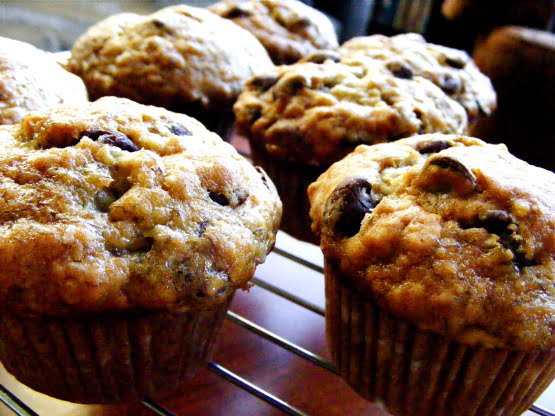All sorts of motives can draw people to veganism. Some of us want to live longer, healthier lives or do our part to reduce pollution. Others have made the switch because they want to preserve Earth’s natural resources or because they always loved animals and are ethically opposed to eating them. My motive to switching to a plant based diet is to live a healthier life and to reverse diabetes.
Studies have shown that a plant based diet reduces the risk of chronic degenerative diseases such as diabetes, obesity, coronary artery disease, high blood pressure and certain types of cancer including colon, breast, prostate, stomach and lung cancer.
A plant based diet and exercise can help manage diabetes and improve blood sugar levels!!!
Millions of people battling diabetes could improve their blood sugar levels by removing animal fats from their diet. Scientists believe removing animal fats could help cure diabetes, leaving patients free from the disease.
10 Things You Need to Know Before Going Vegan!!!
1. Your friends and family will ask a lot of questions
People are very sensitive about their diets, especially when you challenge what they have always believed. The best way to minimize conflict is to emphasize that you are going vegan for your own reasons and that it seems to work for you. In other words, make it about you, so nobody feels they need to defend their choices.
2. You don’t have to make the switch at once
You won’t just wake up one morning magically vegan. It takes work, so it should also take time. Start by adding more plant-based foods to your diet, while at the same time cutting back on animal products, especially those that are non-organic, and more importantly processed, refined foods. Making gradual changes and assessing how you are feeling along the way is key.
3. You’ll have to find new protein sources
Every meal should contain protein. Proteins are the building blocks of life: they break down into amino acids that promote cell growth and repair. The Institute of Medicine recommends that adults get at least 0.8 grams of protein daily for every kilogram of body mass—that’s about 54 grams for a 150-pound woman. For example a good sources of vegan protein includes nuts, seeds, lentils, beans and quinoa.
4. Be prepared to read food labels
If you’re serious about being vegan, checking food labels and verifying ingredients is a must. Just because a food product is not glaringly non-vegan doesn’t mean that it’s suitable for a vegan diet. Casein and whey, which come from milk, are present in many cereal bars, breads, and granolas, while gelatin and tallow (also known as suet) are derived from meat. Then there’s Natural Red 4 (also known as carmine, cochineal, or cochineal extract), which is a food coloring derived from the dried bodies of female beetles. Head spinning yet? The Vegetarian Resource Group’s list of common food ingredients can help.
5. You’ll need a B12 supplement
Vitamin B12 occurs naturally only in animal foods, so you’ll want to stock up on a variety of B12-fortified foods as well as a B12 supplement. B12 keeps the body’s nerve and blood cells healthy and helps make DNA, so deficiencies can lead to tiredness, weakness, constipation, loss of appetite, weight loss (the bad kind), nerve problems, and depression. To find out if you need to up your intake, ask your doctor for a simple blood draw.
6. …And maybe an iron supplement, too
Iron comes in two forms: heme and non-heme. Heme, which makes up about 40% of the iron in animal foods, is easily absorbed by the body. Vegan diets contain only non-heme, which is less readily absorbed, so you may need to ingest more iron if you want to get the same benefit. Good vegan iron sources include legumes, sunflower seeds, dried raisins, and dark, leafy greens. Vitamin C-rich foods (think: red peppers, citrus, and broccoli) aid iron absorption
7. Plants might cover your calcium needs
The NIH recommends that adults between the ages of 19 and 50 get a minimum of 1,000 mg of calcium a day, but preliminary research shows vegans may be able to get away with less than that. A European Journal study found that when vegans consumed at least 525 mg per day of calcium, their risk of bone fracture was no different than that of non-vegetarians with similar calcium intakes. The key is eating a variety of naturally calcium-rich foods such as kale, bok choy, almonds, soy beans, figs, and navel oranges as well as calcium-fortified foods such as cereals and plant-based milks. Bonus: soy, leafy greens, and most fortified foods are also high in vitamin D, which helps your body absorb calcium.
8. Good sources of healthy fats and fiber
Whole grains, vegetables, fruits, and legumes contain no cholesterol and are low in fat, especially saturated fats. They are also high in fiber and other nutrients.
9. …my skin is always glowing
A plant-based diet will clear your complexion, fight wrinkles, and protect your skin from burns and dryness.
10. Better quality of sleep
After I went vegan, I found that I was sleeping for less time each night but waking up more refreshed. Turns out, it wasn’t just me: A study on the physiological benefits of a vegan diet found that subjects who switched to eating purely plant-based reported an improvement in the quality of their sleep.
More and more celebrities, restaurants and bloggers are going vegan. At café evergreen we are proud to be part of this growth of knowledge. We are creating more and more various dishes for our menu…we just added Vegan/GlutenFree Muffins. Shortly we will have the fall menu with new items, amongst them will be a raw vegan dish.
My favorite are the blueberry and chocolate chip muffins.


